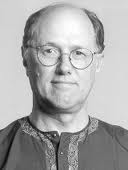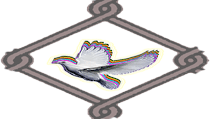 Will the light overcome the darkness?
Will the light overcome the darkness?
–previously published in The Star Press.
The fall season is the time of year when the days become shorter and the nights longer. It is as if the light of day and the darkness of the night are engaged in an unending battle. During the fall, as the nights lengthen, it appears the darkness is winning.
Philosophers of the ancient world, the Persian prophet Zoroaster being one example, used light verses darkness as an analogy for the struggles that plague humanity.
Light became a metaphor for wisdom and knowledge, whereas darkness symbolized ignorance and delusion. To walk in darkness was to lose one’s way. To this day, the great religions of the world make the same associations. “God is light in whom there is no darkness” says the 1st Epistle of the apostle John. The Qur’an, which avoids using metaphors to explain God, makes one exception when it says: “God is the light of the heavens and the earth.”
In addition, the word light is found within the term enlightenment which in the West, refers to an age (ca. 1750 to 1800) when reason was valued over blind faith. In today’s political climate, one could add to blind faith the unwillingness of congressional leaders to compromise their blind partisan ideologies.
As if to help the light emerge victorious over the darkness in this allegorical cosmic battle, three of the major world religions that evolved in the northern hemisphere celebrate festivals of light.
These holidays occur at slightly different times during the months of November and December. Hindus observe Diwali, those of the Jewish faith commemorate Hanukkah, and Christians celebrate Christmas.
In doing so, each of these traditions teach us something about the light we seek. And we must not leave out those who look to science to guide humanity. Astronomers have determined the universe was dark for the first 400 million years after the Big Bang. Yet somehow, out of that primordial creation event, and subsequently through biological evolution and the growth of human consciousness, light eventually asserted itself.
The lawlessness of the jungle and the survival of the fittest submitted to the rule of law, moral order and social justice.
On Dec. 14, the last day of school before the Christmas holiday break, a great darkness descended upon our nation. A young man, filled with societal hate and no doubt in mental turmoil, methodically planned and used an assault weapon to murder 20 kindergarten and first-grade students, the principal, school psychologist, and four teachers at Sandy Hook Elementary School. He then committed suicide, suggesting that this misguided 20-year-old had no awareness of a Higher Power that would hold him accountable for his actions after he died.
The town of Newtown, Conn., and indeed our entire country, will never be the same.
What actions will we now take to avert such tragedies?
Will we embrace the light of wisdom and reenact past legislation that bans military-style assault weapons, re-institutes background checks and a waiting period before someone can purchase a gun?
Will we strengthen mental health and counseling programs in our communities? Will we institute workshops and courses in our schools that teach civil communication, active nonviolence and conflict resolution?
Or will we ignore the root causes of extreme anger in our society, continue to foster a culture of violence and allow anyone who chooses, to arm themselves with assault rifles?
It is time we take decisive action against gun violence. Failing to act will let the darkness win.
George Wolfe is the coordinator of outreach programs for the Ball State University Center for Peace and Conflict Studies. He is also a trained mediator and the author of “The Spiritual Power of Nonviolence: Interfaith Understanding for a Future Without War.”


